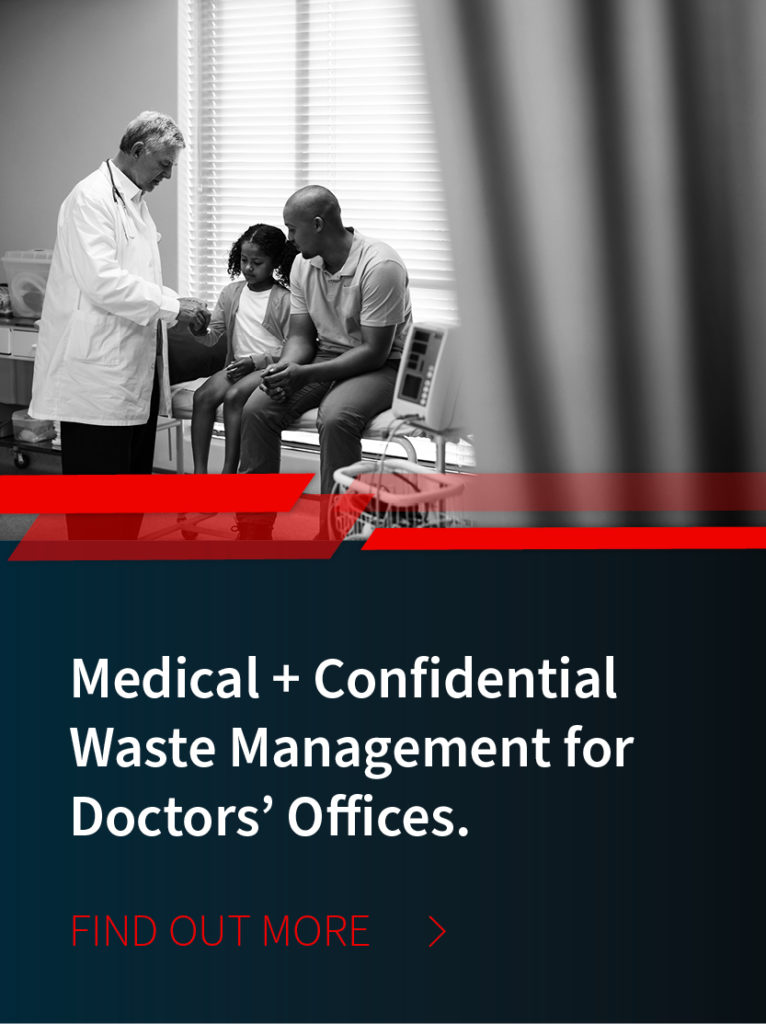
/ IN THIS BLOG
If you work in a medical facility as a trained healthcare professional or an ancillary or support employee of a doctor's office, a hospital, or any other clinical setting, it’s important to protect yourself from potentially dangerous contact with infectious materials or other work-related dangers. Proper education and training ensures that safety compliance procedures in your facility are in place. The Occupational Safety and Health Administration (OSHA) insures that employees and patients are safeguarded through measures that help reduce accidents and injuries in your medical facility.
Be knowledgeable about OSHA training for doctors’ offices. Stay up to date with safety regulations, surveillance, and reporting to not only maintain compliance with healthcare regulatory agencies, but protect your facility from infractions and possible fines and penalties.
Some OSHA trainings for clinician staff are obligatory every year, while others require management and employees to stay up-to-date on new developments in the field. Either way, it’s vital to ensure your office and staff remain in full compliance with OSHA's training requirements to avoid fines or other consequences.
01 / What is OSHA Compliancy Training?
OSHA is all about ensuring safe working conditions for all businesses, whether healthcare, industrial, veterinary, or long term care, to name just a few. All employers should ensure that their place of business is as safe as possible. Healthcare professionals come into contact daily with potential dangers, from patients to the tools and supplies used to treat those patients.
OSHA compliancy training helps to ensure that safe practices are followed in any place of business. Back in 1970, the ‘Safety Bill of Rights’ (otherwise known as the Occupational Safety and Health Act of 1970) was passed through Congress, focusing on prevention of injuries and death in the workplace.
OSHA training involves educating employees and workers to recognize dangers and hazards found in their workplace, to take steps to avoid and abate them, and focus on injury prevention.
For this reason, all healthcare providers, whether a hospital or a doctor’s office, should develop an OSHA safety plan to protect their employees.
02 / Developing an OSHA Safety Plan
Developing an OSHA safety plan for your doctor’s office includes a number of steps. In fact, all businesses and industries can follow basic steps to get started on such a plan, but each will obviously be catered to the business or industry. In healthcare scenarios, an OSHA safety plan might look something like this:
Train ALL employees to recognize hazardous products or waste.
Provide personal protective equipment (PPE) as needed for medical provider safety.
Have first-aid kits on-site and train employees regarding their location.
Pin an OSHA ‘It’s the Law’ poster in a prominent location for all employees to see. Certain information must be included on the poster to maintain OSHA compliance.
Always have a ‘spill kit’ that meets OSHA standards regarding number and placement.
Submit timely and accurate reporting measures in the event of an injury, from a needle-stick to a healthcare provider’s exposure to an infectious disease such as HIV or hepatitis.
Have a fire action and safety exit plan in place.
Create action plans for emergencies along with OSHA compliance training.
When it comes to OSHA training compliance for doctor’s offices, be aware that (depending on the services and treatments provided) you may find several training categories that need to be covered.
03 / OSHA Training Compliance for Doctor’s Office
Doctor’s office training compliance must meet federal standards but may also require more considerations depending on your state. The U.S. Department of Labor provides links to OSHA-approved state plans that cover safety and health standards and regulations here. Other states maintain the guidelines and regulations of the federal OSHA.
Safety programs that a doctor’s office must be aware of include:
OSHA Bloodborne Pathogen Training
Bloodborne pathogens training is the most straightforward training OSHA requires for doctor’s offices. According to OSHA’s Bloodborne Pathogens Standard, employees who may become exposed to blood or ‘other potentially infection materials’ or OPIM, must be trained annually as per the Model Plans and Programs for the OSHA Bloodborne Standards and Hazard Communications Standards. If they aren’t, you may not be OSHA compliant and your facility could be fined for that. Specifics of training mandated depends largely on the clinic you work for and the staff there. However, it's possible you won't be allowed to continue work until the OSHA bloodborne pathogens training has been completed.
OSHA Hazard Communication Standard (HazCom)
HazCom is another important facet of OSHA training requirements included in the Model Plans and Programs for the OSHA Bloodborne Standards and Hazard Communications Standards as mentioned above. This involves the proper identification and labeling of all hazardous chemicals and materials used within the clinic, doctor's office, or hospital. Proper labeling helps ensure all staff members know exactly what they are handling and how to use and dispose of those particular items safely and per compliance guidelines. Properly filling out safety data sheets (SDSs) for all chemicals in that clinical environment also falls under this umbrella. All these standards and regulations work toward more informed, safer employees.
The Health Insurance Portability and Accountability Act (HIPAA)
The Health Insurance Portability and Accountability Act (HIPAA), passed in 1996, requires safeguards in healthcare environments that protect the privacy of patients, most closely associated with the protection of an individual's mental and physical health records. It protects that individual from unauthorized disclosure of any medical history details or treatments sought for medical issues.
What does OSHA have to do with HIPAA? OSHA, as a regulatory agency, also has the authority for health oversight under HIPAA. In some cases, OSHA must disclose patient-preference information (PPI) to aid in investigations or to litigate cases. OSHA must comply with regulations per 5 U.S.C. §552a.
So while OSHA training for healthcare professionals is required, so too is HIPAA training for anyone who is exposed to a patient’s personal health information (PHI). This training is mandatory! Such training in HIPAA-related regulations and exceptions makes for the most knowledgeable and compliant staff possible and avoids the legal and financial repercussions of intentionally or unintentionally violating HIPAA.
04 / Are OSHA Trainings Required, and How Often?
Proper training and education of healthcare employees ensures that your doctor’s office staff is made aware of state and federal regulations for their work environment. So, the answer to whether OSHA training is required, the answer is a resounding yes.
To legally work in a doctor's office or hospital, every member of the medical staff must complete relevant OSHA doctor’s office trainings. As already noted, to maintain OSHA compliance, the blood-borne pathogens training must be completed every year.
Even though the Hazardous Communications (hazcom) and HIPAA portions of the training aren't necessarily required every year, that isn’t meant to imply the ‘one and done’ principal. Remember that OSHA continually updates its trainings, guidelines, and information as regulations and rules (and interpretations of those regulations and rules) change.
Even though it's rare for an OSHA regulator to come into a medical facility to assess whether employees are fully up to date with trainings, there are several benefits to being so. Primarily, trainings are conducted for a reason and keep staff informed about safety regulations and patient confidentiality, both incredibly important factors in the medical facility. They also ensure your facility avoids fines and other potentially more severe consequences for being non-compliant in regard to staff training.
05 / Turn to Experts for OSHA Advice
OSHA trainings and what it takes to fully be in compliance are not always straightforward matters. If you're confused or unsure about the policies, you should speak to an approved OSHA compliance training company for medical practices such as MCF Environmental Services.
With decades of experience in the field, MCF has the expertise to ensure all your facility's employees are fully up to date on trainings and aware of the latest changes and updates to best practices and policy. Call us for information about our full service OSHA compliance training for doctor’s offices and hospitals.
Robert Losurdo
President, COO








